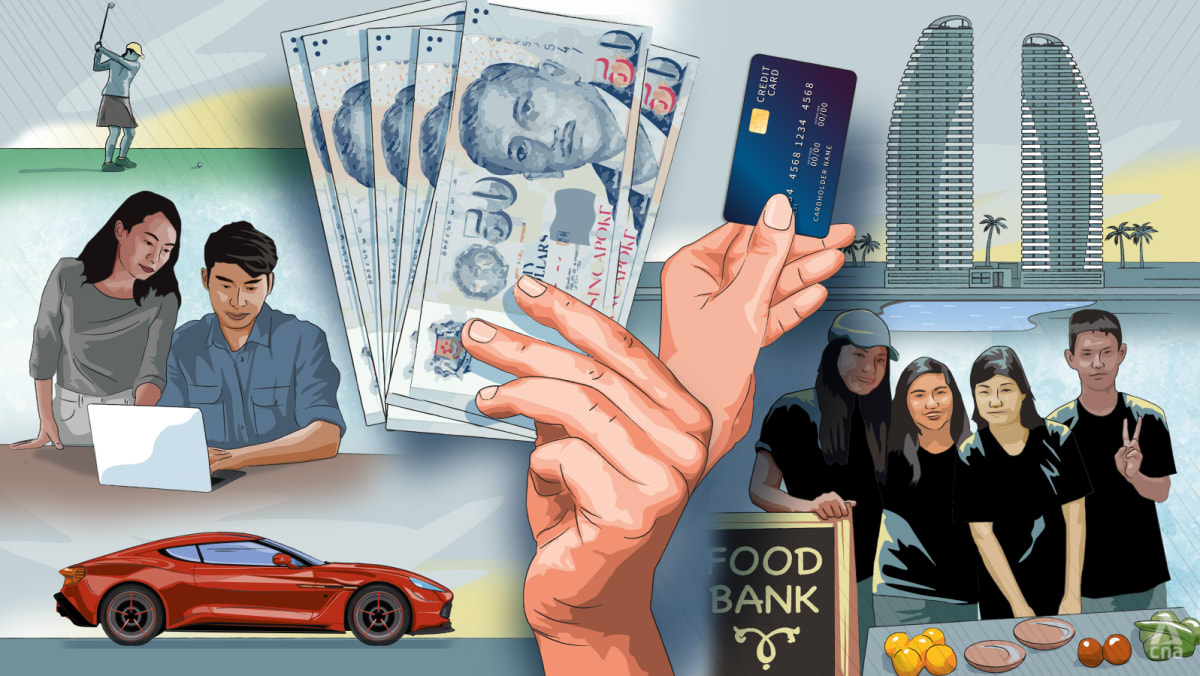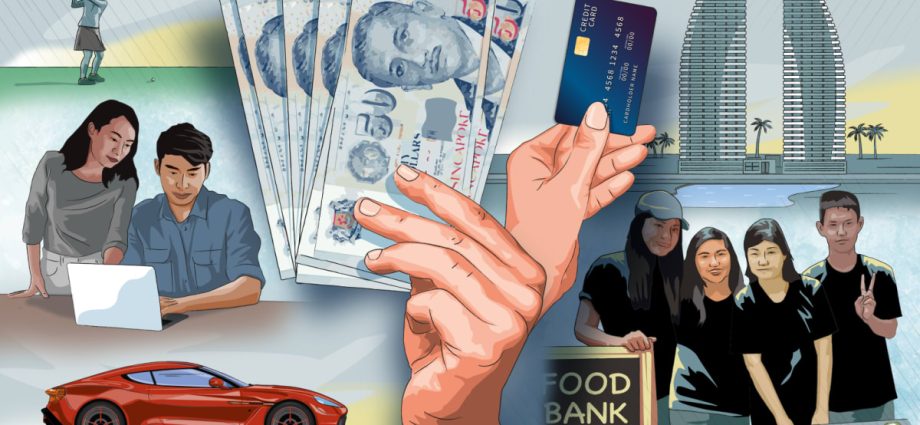
COUNTRY CLUBS AND CREDIT CARDS
The 5Cs likely emerged during the early 1970s when the Singapore economy was racing ahead with double-digit growth. As incomes went up, so did the aspirations of a young nation.
Back then, the buzzword among Singaporeans was “upgrading”, or upward social mobility, and the 5Cs came to be practical indicators of that, said National University of Singapore’s Associate Professor Tan Ern Ser.
“Many Singaporeans, having risen from poor or low-income backgrounds, possess a strong desire to be able to rise up from circumstances of lack to doing better than their parents and achieving material comfort and security, and correspondingly higher social status,” he said.
Television dramas, such as Channel 8’s Marriage Dollars and Sense in 1996, and movies like Singapore Dreaming in 2006, depicted how the 5Cs influenced major decisions in Singaporean life.
As the country developed, subsequent generations of Singaporeans grew up enjoying better standards of living, attaining higher educational qualifications and were more well-travelled or exposed to the world beyond Singapore.
Major crises like the COVID-19 pandemic also made people rethink their priorities in life, sociologists said.
With aspirations being a product of time and environment, it was only natural that some of the 5Cs would become obsolete or less relevant, said Singapore Management University’s Professor Paulin Tay Straughan.
A membership at a country club, for one, will likely be “written off”, Dr Straughan said.
Country clubs, especially those with sprawling golf courses, used to be much coveted due to their prestige as the domain of the well-heeled, offering exclusivity and networking opportunities.
At one point, club memberships also carried investment value, according to a TODAY article.
But the appeal of country clubs has dipped over time. Business networking, for example, is no longer forged just over a game of golf, said Dr Straughan.
Credit cards have also waned in prestige, as they are now commonplace and have become just another way to pay, said Assoc Prof Tan.
Rather than status, getting a new card these days is more about making the most out of one’s spending by earning rewards points, cash rebates and air miles.
For example, Nathan, a 33-year-old working in a technology firm, has designated cards for accumulating air miles and cashback for everyday spending.
Some have done away with credit cards entirely. Ms Jasmine Tuan, 45, had as many as a dozen cards in her 20s. She cancelled all of them about a decade ago. These days, she goes about with just four plastics in her wallet – an EZ-link card, an ATM card and two debit cards for grocery shopping and travel.
CASH IS STILL KING
Sociologists reckoned that only three out of the 5Cs remain relevant – cash, cars and condominiums.
Assoc Prof Tan described cash as “fundamental to achieving the trappings of success”, while it is not surprising for cars and private properties to still be seen as markers of social mobility.
In property-hungry Singapore, a condominium is largely regarded as a desirable investment option.
But sky-rocketing Certificate of Entitlement (COE) premiums are putting car ownership out of reach for many Singaporeans. With a reliable local public transport system and a variety of ride-hailing options, people will question the need to own a car, regardless of status symbol, said Dr Straughan.
After hitting new highs in October’s second bidding exercise, COE premiums closed lower in all categories in the latest bidding exercise on Nov 8.
Nathan, who bought a used car last year, said his decision was not driven by prestige – instead, it was about having the freedom to head out until late.
That said, sky-high COE premiums are giving him second thoughts about the need for a car.

